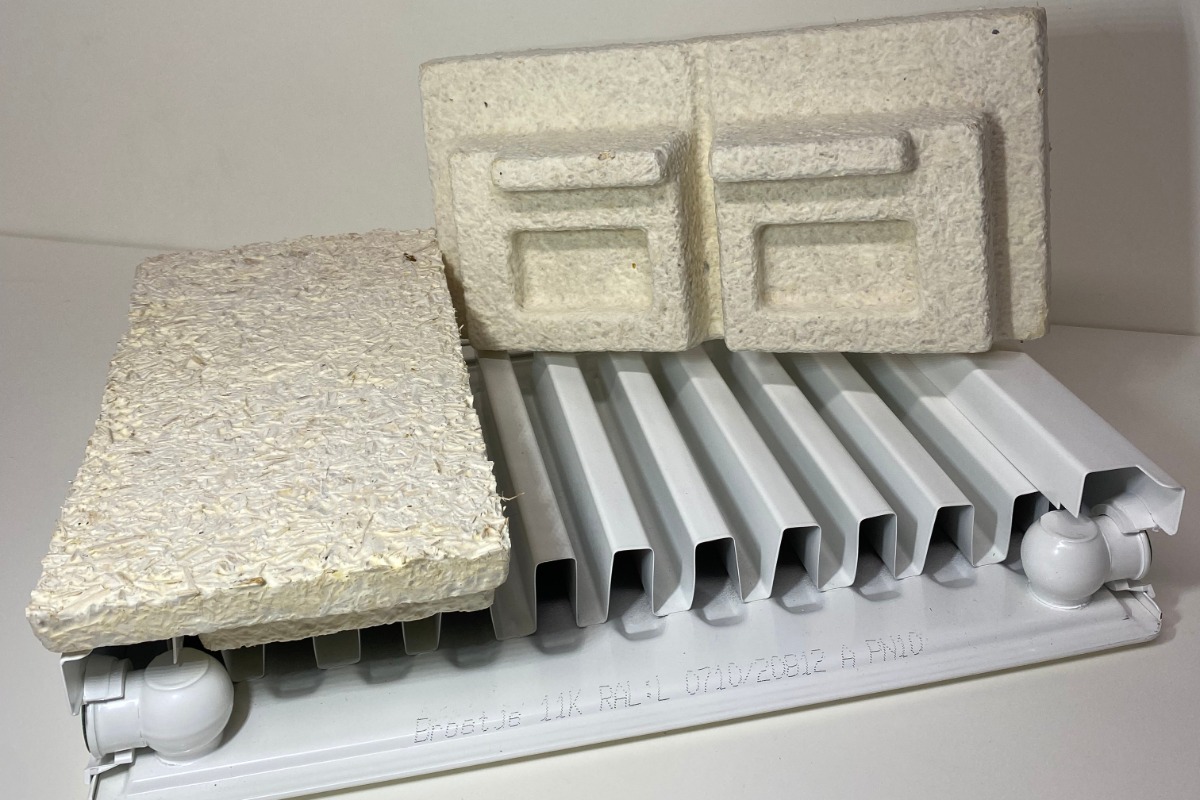

The Solutions Explorer lets you create alerts that match your needs. You can create several alerts and you will receive a notification each time a new Solar Impulse Efficient Solutions is labelled and matches your filters.
Your Search Alerts will show up here.
Sign in to create alerts for your filters and search terms.
Sign inDon't have an account?
Sign upAccess exclusive opportunities for Investor Members Only
The Investment Hub is a platform by the Solar Impulse Foundation that connects innovators with investors to fund scalable and sustainable solutions. Through tailored matchmaking, e-pitches, and a collaborative digital environment, it helps drive impactful innovation forward.
Sign in to explore a world of dynamic and high-potential investment opportunities.
Sign inDon't have an account?
Sign upFebruary 1, 2024
Broetje
Hamburg

In February 2024, Brötje switched from plastic foam protective packaging to Mycelium Packaging to minimize the environmental and health risks associated with plastic foam. Brötje's radiators need protecting from scratches and dents. Mycelium Packaging is rigid, sturdy and light, which lends itself perfectly to this use case and performed better than cardboard alternatives. In collaboration with Brötje, Grown bio's designers recreated the original shape and further improved the design to achieve the perfect fit for the radiators.
Brötje and Grown bio aimed to multiple problems related to the use of plastic foams, including plastic waste, environmental pollution and health risks. Mycelium Packaging is not only a suitable alternative for plastic foam, but also eliminates the aforementioned risks, as it compostable and can enter the circular economy, it saves 600g of CO2 per litre of EPS (plastic foam) and is safe for humans and animals.
One unit of Brötje's Mycelium Packaging saves 900g of CO2 per L of EPS, having already saved millions of grams of CO2-Emissions over the last year. Brötje's new packaging also eliminates the generation of CO2 during the recycling process of EPS, since Mycelium Packaging can simply be composted at home.
Moreover, Grown bio uses local hemp waste fibers from Groningen in the Netherlands, mixed with mycelium to grow the protective panels.
The problem of plastic foams is present in the winning of raw materials, the shipping over long distances of styrene, the blowing of the foam with pentane gas which is 20 times more potent than CO2. And finally, during the use and after life of styrofoam, it causes pollution, health risks and damage to nature. Now, instead of this toxic and problematic plastic packaging foam, there is Mycelium Packaging. This packaging innovation which has most of the properties of its plastic alternative, is not damaging to the planet, completely safe for humans, and made with only natural fibers and mycelium. In the harmony of fibers and mycelium, the living mycelium plays the glueing role, while the fibers offer nutrition to the mycelium and give strength to the end product. After a short growth period of just 6 days, that can take place in any form, they mycelium is killed in an oven at 80 degrees, making it an inert (dead) product, ready to be used as protective packaging.
Share
The information set out above, is solely for the purposes of information and the Solar Impulse Foundation does not provide any guarantee as to its authenticity, completeness or accuracy. This information does not constitute investment advice or a recommendation to buy into, transact or to enter into any agreement with any of the parties or persons mentioned above. Potential investors or interested parties are solely responsible for their investment or business decisions and for performing any due diligence required by the circumstances. The innovator has asserted ownership of the intellectual property rights for images, videos, and content showcased above, affirming full and unrestricted usage rights, and has provided explicit permission for the Solar Impulse Foundation to publish such information designated as "public" in the application form.